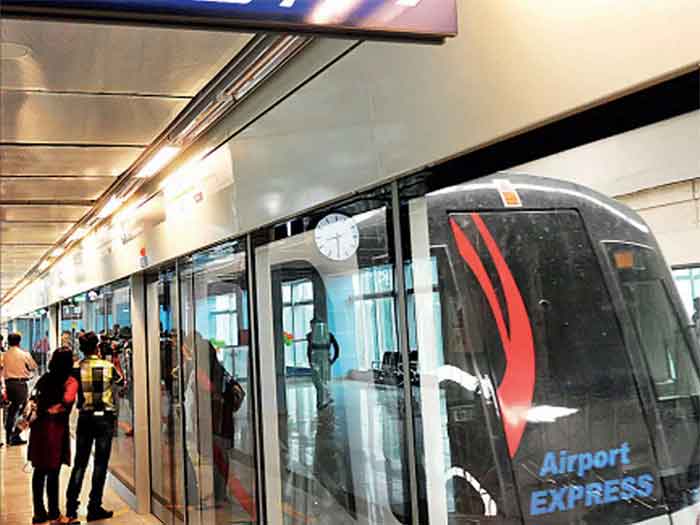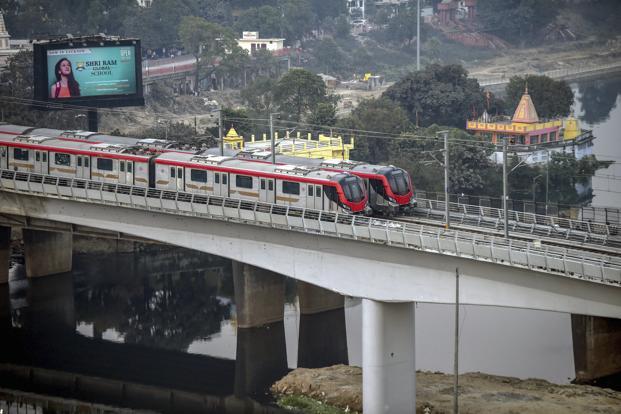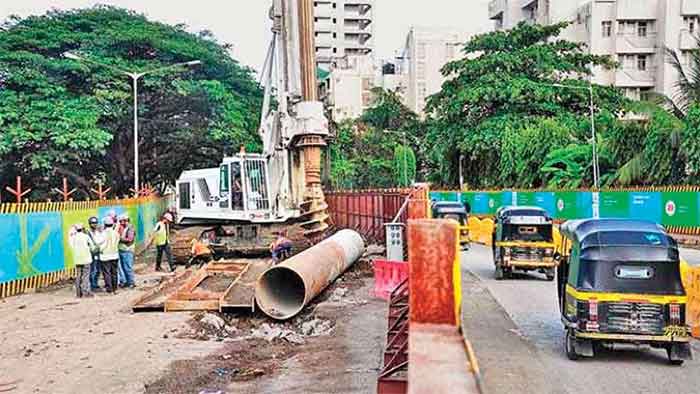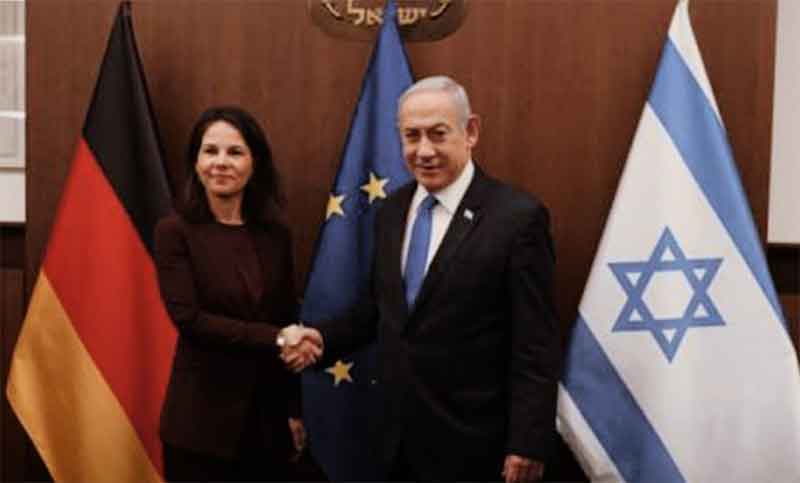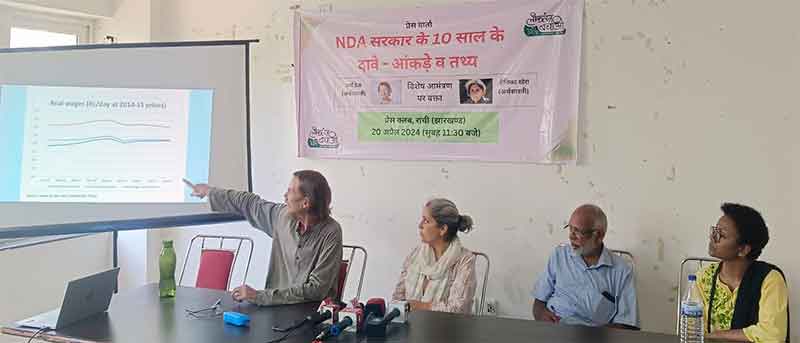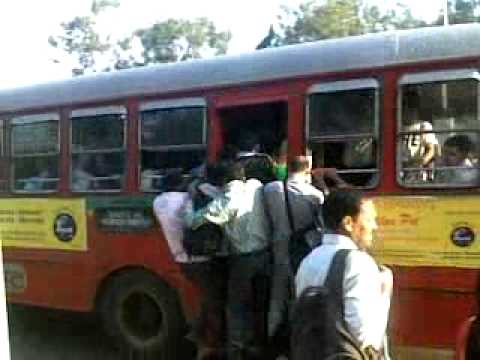
It would be good if our politicians and bureaucrats did a little introspection like Bangalore’s traffic police commissioner Ravikanthe Gowda. He said he had not travelled by a bus for the last twenty years and we make decisions about public transport without using public transport ourselves and without involving people who are real users.
This situation has to change, he said while participating in a webinar organised by Environment Support Group of Bangalore last week. He said incentives should be given to people not using motor cars. These people are real environmentalists, they need to be rewarded.
Prof. Rajeev Gowda, Former MP (Rajya Sabha), drew a link between usage of public transport and the quality of air in cities. “By encouraging more people to use buses and having more eco-friendly buses, we will literally be able to change the quality of air in our cities”, Prof. Gowda asserted. He also called for the introduction of ‘Smart Bus Stands’ everywhere, along with comfortable and inclusive buses, which would provide information of bus arrival times and travel routes, thereby augmenting convenience of commuters.
Prof. Gowda felt that the integration of bicycles and other forms of non-motorised transport along with bus priority lanes. Mr. Uday B. Garudachar, MLA (Chickpet, Bengaluru), said while reminiscing about simpler times when nobody ever imagined Bengaluru would one day have such serious mobility problems. “As a toddler in the late ‘60s, I came to know that the first traffic signal in Bengaluru came up near the Town Hall”, Mr. Garudachar recalled. Jumping ahead to current times, Mr. Garudachar pointed out that although the number of vehicles in Bengaluru has now grown to over one crore, the city’s roads have not grown at an equal pace to accommodate this influx.
He suggested that creating a few satellite townships is a critical need to decongest Bengaluru. Mr. Garudachar also extended his full support to the pedestrianisation of iconic Gandhibazaar, in his constituency, and suggested it could serve as an example for similar efforts across the city. Ms. V. Manjula, Commissioner, Directorate of Urban Land Transport (DULT), Government of Karnataka, asserted that planning for public transport, and urban design in general, should focus on three major aspects: inclusivity, health and accessibility. She called for an increased use of data to improve the operations of buses and facilitate convenience of commuters. For which she said a shift in the public’s mind-set was essential: “We need to trigger behaviour change in the public to embrace cycling, walking and other forms of non-motorised transport”, Ms. Manjula submitted.
. Mr. B. R. Ravikanthe Gowda, Joint Commissioner of Bangalore Traffic Police, argued that without first placing restrictions on private transport, the utilisation of public transport would not increase. He also brought to notice the poor condition of the city’s footpaths, calling for them to be improved in the interest of pedestrians. Mr. Ravikanthe Gowda could not have been more effusive in his praise for the citizens of Bengaluru who choose to abstain from using motor vehicles. “In Bengaluru, those who are not using vehicles are the real environmentalists. We need to put in good sidewalks and cycle paths for these heroes”, he declared. Having to deal with the myriad mobility issues of Bengaluru city on a daily basis, Mr. Ravikanthe Gowda insisted that the humble bus is central to fixing many of these problems. As he put it, “A safe and affordable public transport system is key to resolving the traffic issues of Bengaluru.” Mr. Leo Saldanha brought to attention the need to include more public participation in decisions relating to urban mobility. “Public administration also requires the public in administration. I would argue that so far the public has been kept out”, he argued. In response to this, Ms. Manjula acknowledged that public participation is important, but simultaneously pointed out that even initiatives which are attempted by the administration cannot succeed without public participation.
Prof. Vinod Vyasulu, an economist who retired as Vice Dean at Jindal School of Government & Policy, drew attention to larger political and economic forces that cause unaffordable bus fares. “Public transport is not a commodity, it is a utility. Since it’s being treated as a commodity, fares are atrociously high”, he declared. He criticised the Government’s increasing transition towards privatisation of all public goods, ranging from health to education to mobility, calling it a sheer “abdication of their responsibility” to the citizens of India. He called for a political movement to engage with all aspects of urban planning, governance and mobility, ensuring decision making by the privileged is rejected and deeply democratic and representative decision making becomes the mainstay. Professor Geetam Tiwari, Professor at Indian Institute of Technology, Delhi and key designer of Delhi’s BRTS, drew attention to unfair priority private vehicles, especially cars, are given over buses on Indian roads.
A major concern she highlighted was how policy makers personal experiences influence the decisions they take. “Decision makers at the City, State and National level are all car users. Unfortunately, their personal experiences are extended towards public policy”, observed Professor Tiwari. This structural inadequacy needs to be addressed a priori, Prof Tiwari held, Dr. Usha Rao, urban anthropologist and co-maker of the documentary “Our Metropolis”, drew focus to the problematic lack of democratic decision making in large mobility projects like Metros, elevated corridors and flyovers. “Large projects with so much capital riding on them Environmental Social d. are not open to public consultation. They have no space for any interrogation or engagement”, asserted Dr. Rao. While acknowledging the aesthetics and functionality associated with the Bengaluru Metro, she drew attention to how in building such mega projects, the destruction and destructive transformation of the existing city is never internalised in public memories. Ms. C. Shikha, managing director of the Bengaluru Metropolitan Transportation Corporation, highlighted some of the key efforts being taken to improve the quality of bus service in the city. There are plans to increase the fleet size from current 6,500 to 8,000 buses, even as she argued at least 10,000 buses are needed for this massive city. There are efforts to integrate cycling with taking a bus and so cycle-rack mounts on buses are being installed.
Dinesh Mohan structure Policy Analyst and Emeritus Professor at Indian Institute of Technology, Delhi, held that in order to promote greater ridership on buses, the bus fare needs to be lesser than the cost per kilometer of riding a two-wheeler. He maintained that only bus fares lower than Re. 1 per kilometer would offer sufficient incentive for the public to transition to provided they are available everywhere. In addition to lowering fares, he also advocated making all buses air-conditioned, low-floor and fully accessible, thus making them more comfortable and accessible to users. He also highlighted how it is critical to make the entire daily trip (four times by walk and at least two bus trips) pleasant, safe and secure. For which, he stressed, it is absolutely essential to make all streets designed to accommodate street vending, who provide a variety of services and also ensure safety for all, and most times. He also highlighted the importance of making city blocks smaller and personable, so walking, cycling and bussing become possible everywhere.
Vidyadhar Date is a senior journalist and author of a book on the need to democratize streets and transport
SIGN UP FOR COUNTERCURRENTS DAILY NEWSLETTER

